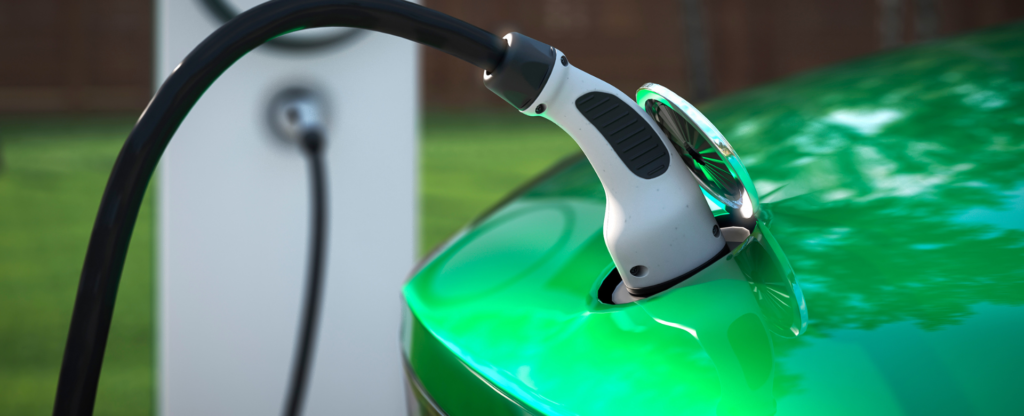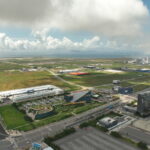ASIA ELECTRONICS INDUSTRYYOUR WINDOW TO SMART MANUFACTURING
USI Builds up Powertrain Systems Manufacturing for EV
USI, a leading global electronics manufacturing services provider, is expanding its expertise and capabilities in the electric vehicle (EV) industry. With the growing demand for EVs worldwide, USI is committed to integrating the production of powertrain systems, a critical component in the EV industry.
The International Energy Agency (IEA) released a report in April 2023 indicating that global EV sales are projected to grow 35% compared to the previous year. This translates to nearly 14 million vehicles. This rapid growth reflects the continuous expansion and innovation within the EV industry, with estimates from Goldman Sachs Research this February suggesting that EVs could capture about 50% of global car sales by 2035.

The powertrain system includes components such as batteries, motors, inverters, and controllers. Mainly, it plays a pivotal role in the EV industry. Specifically, it is responsible for converting electrical energy into mechanical energy and delivering it to the wheels. The powertrain system’s design and manufacturing capabilities directly impact electric vehicles’ performance, efficiency, reliability, and competitiveness.
Steven Su, GM of APE & Wireless & Wearable Miniaturization Solutions Business Group, said, “USI is committed to integrating the manufacturing of electric vehicle powertrain systems. Currently, the company produces IGBT and silicon carbide (SiC) power modules primarily used in electric vehicles’ power inverters and onboard chargers. These modules are crucial components for achieving efficient energy conversion and charging capabilities. In the future, there are plans to expand the application of these power modules to other components, such as inverters for electric compressors and DC-DC converters.”
“Furthermore, USI’s powertrain solutions encompass power inverters, batteries and thermal management systems. These components ensure optimized energy flow management and effective heat dissipation, enhancing overall vehicle performance and safety. By integrating upstream and downstream capabilities, USI provides customers with comprehensive one-stop service experiences, simplifying procurement and supply chain management, accelerating time-to-market, and boosting competitiveness,” continued Su.
USI has successfully verified and developed various manufacturing processes, including die and wire bonding for power modules in EVs, as well as sintering, Cu clip packaging, welding, molding, and other customized processes required to meet specific manufacturing needs. USI has gained significant production experience in most of these processes.
Moreover, for powertrain system assembly products, USI provides tailored design solutions for automated production based on customer product characteristics. Key processes include SMT component placement, wave soldering, conformal coating, ultrasonic welding, and the expansion into automated assembly lines. This enhances manufacturing design capabilities (DFM) and fosters close collaboration with customers through joint development initiatives (JDM) to improve the cost competitiveness of their products.
With the continuous growth in demand for EVs, USI provides strong support to the automotive industry with its powerful electronic manufacturing capabilities. By combining expertise in powertrain systems, advanced manufacturing technologies, and a commitment to automotive safety standards, USI has gained recognition and orders from automotive original equipment manufacturers and Tier 1 suppliers in Europe, the United States, and Japan. The application models include sedans, pickups, SUVs, and commercial trucks/buses.
Among USI’s 28 factories in the globe, 13 of them have obtained the IATF 16949 certification for automotive standards. Among these, the Zhangjiang, Kunshan, and Mexico factories have also achieved ISO 26262 certifications for manufacturing sections of Chapter 2 and Chapter 7, meeting the stringent automotive functional safety standards required by original equipment manufacturers (OEMs). Furthermore, Zhangjiang facility has obtained TISAX Level 3 certification in 2023, demonstrating compliance with automotive safety standards set by OEM customers.




